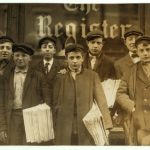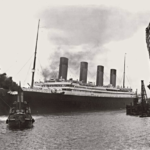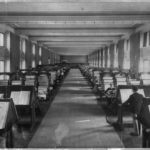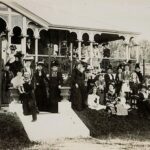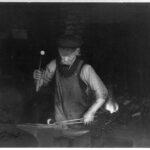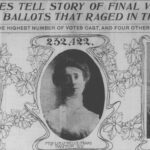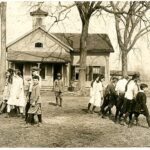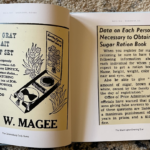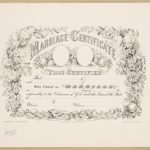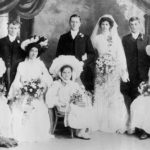In the world of genealogy research, every clue counts. While census records and vital statistics form the backbone of family history, savvy researchers know the value of diving deeper. Enter the wealth of untapped information in old newspapers, especially in society pages and social columns. These seemingly frivolous snippets of yesteryear’s gossip can actually provide rich, colorful details about our ancestors’ lives.
The Power of Society Pages
Society pages chronicled the social lives of the local elite or prominent figures within a community. From garden parties to charity events, these pages recorded who was attending which gatherings, who was traveling abroad, and even who was hosting special dinners. For genealogists, this can be a goldmine of information, offering unique glimpses into the social activities of our ancestors.
If you find your ancestor mentioned in a society column, it not only confirms their presence at a certain time and place but can also reveal their social standing. Were they involved in exclusive clubs or organizations? Did they rub elbows with prominent families? These mentions can provide context to their life beyond vital records, giving you insight into the social fabric of their community and where they fit within it.
5 Key Areas to Explore in Society Pages
- Scan for Social Activities: Society pages teemed with reports of parties, dances, teas, and other social gatherings. Look for mentions of your ancestors attending or hosting such events. These details can paint a vivid picture of their social lives and community involvement. For example, a simple line like “Mr. and Mrs. John Smith hosted a dinner party for 12 at their Oak Street home” can confirm an address, suggest economic status, and hint at the size of their social circle.
- Note Club Memberships: Many columns listed members of local clubs and organizations. Whether it was the Rotary Club, a church group, or a ladies’ auxiliary, these affiliations can reveal your ancestors’ interests, values, and social connections. Don’t overlook the importance of these groups – they often played a significant role in community life and could influence business and personal relationships.
- Track Personal Achievements: From academic honors to business successes, social columns frequently celebrated individual accomplishments. A mention of your great-grandfather’s promotion at the local bank or your great-aunt’s victory in a baking contest adds color to their life stories. These achievements can also provide clues about education levels, career paths, and talents that may have been passed down through generations.
- Analyze Social Status: The way your ancestors were described or the events they attended can offer valuable insights into their social standing. Were they referred to by title (Dr., Rev., Hon.)? Did they attend high-profile charity galas or more modest community suppers? These details can help you understand their place in the social hierarchy and how it may have changed over time.
- Uncover Family Connections: Pay close attention to who your ancestors were seen with or mentioned alongside. You might discover previously unknown relatives or important family friends. For instance, a line like “Miss Sarah Johnson, accompanied by her cousin, Miss Emily Brown, departed for a month-long tour of Europe” could lead you to a whole new branch of the family tree.
Maximizing Your Research
To get the most out of society pages and social columns, consider these tips:
- Search local: Look for newspapers from the areas where your ancestors lived.
- Check spelling: Try a variety of name spelling, as newspaper editors weren’t always consistent with names or spelling them correctly!
- Be consistent: Regular appearances in these columns can paint a vivid picture of your ancestors’ social lives over time. Create a timeline of mentions to track changes in their status or circumstances.
- Look beyond your direct ancestors: Information about siblings, cousins, or in-laws can provide valuable context and leads.
- Cross-reference with other sources: Use the information you find to corroborate or challenge data from other records.
- Understand the context: Familiarize yourself with the social norms and expectations of the time and place. This will help you interpret the significance of various events and associations.
- Don’t overlook small-town papers: While big city newspapers might have more extensive society pages, small-town papers often provided more detailed coverage of local residents.
- Follow up on leads: Use the information you find in society pages as springboards for further research. A mention of a club membership might lead you to explore that organization’s records. A reference to a wedding anniversary could help you pinpoint a marriage date. Every detail has the potential to open new avenues of investigation.
Challenges and Considerations
While society pages can be invaluable, it’s important to approach them with a critical eye. Remember that these columns often focused on the more affluent or socially connected members of a community. If your ancestors were working class or lived in rural areas, they might not appear as frequently, if at all.
Additionally, the information in these columns wasn’t always 100% accurate. Gossip, exaggerations, and even deliberate manipulations of social standing weren’t uncommon. Always try to verify important information through other sources.
Final Thoughts
Exploring society pages and social columns can add a whole new dimension to your family history research. By uncovering the social activities, achievements, and family connections of your ancestors, you gain a deeper understanding of their lives and the world they lived in. These often-overlooked newspaper sections hold valuable clues that can fill in the gaps left by traditional records, helping you build a more comprehensive and personal family narrative.
So the next time you’re researching your family tree, don’t forget to comb through those society pages and social columns in newspapers—you never know what genealogical gems you might uncover!


